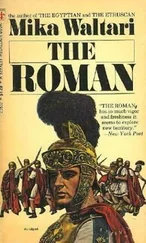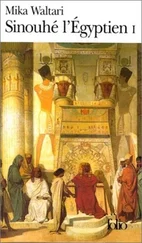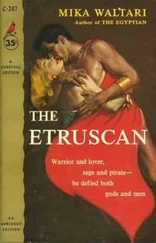Some of the high court officials who had journeyed with me in obedience to Ibrahim’s summons hid their faces, turned their horses, and rode back to the gates, determined to leave the city without delay. The janissaries guarding the gibbet said fiercely, “It is all the fault of the accursed Grand Vizier. The Sultan is innocent, and we never begged this honor. Who can doubt now that Ibrahim is plotting against the Ottoman Empire? The mufti proclaimed a jatwa entitling us to plunder these heretics of their possessions and to sell them into slavery. But Seraskier Ibrahim, that winebibber and blasphemer, denies us our right to pillage. We should like to know how much the merchants have paid him for that. Wages cannot compensate for this injustice and serve only to show that Grand Vizier Ibrahim is suffering from a tender conscience.”
One could sympathize with the janissaries if their tale was true. IskcnAcr-tseleb’s wealth, piety, and pure Turkish origins had won him great regard throughout the Ottoman Empire, so that indeed it can have been no pleasure to stand sentinel over his dangling corpse. I rode on, oppressed by dark forebodings. At the palace chosen by the Grand Vizier for his headquarters I was received with the greatest suspicion; my clothes were repeatedly searched by the guards, who even ripped up the seams of my kaftan in search of poison and hidden weapons. From this I realized the state of terror prevailing in Bagdad. When at length I was led by the elbow into the presence of the Grand Vizier, I found him too greatly agitated to keep still. He was pacing up and down the marble room, his handsome features were puffy and his eyes bloodshot with strain and lack of sleep. His usually well-kept nails were bitten, and he paused often to take a draught of spiced wine. At the sight of me he forgot all his dignity and hurried forward to embrace me. He dismissed the guards and cried, “At last I behold one known and trusted face among the traitors! Blessed be your coming, Michael el-Hakim, for never did I stand in such need of a clearsighted, impartial friend.”
As coolly and dispassionately as he could he gave me a brief account of the progress of the campaign since the departure from Aleppo, and as I thought the matter over I saw that Ibrahim was in possession of so many proofs of Iskender -tseleb’s treachery as to leave no room for doubt. Against the Seraskier’s will, Iskender had been appointed kehaya, or steward, of the army and, blinded by his hatred of the Grand Vizier, he had acted throughout the campaign against the best interests of the troops. Not until the outset of the terrible winter march from Tabriz to Bagdad was Ibrahim able to persuade the Sultan to dismiss the Defterdar from his post as kehaya, and then it was too late, for when snow set in and floods came and roads were transformed into bottomless swamps, the wretched state of the supplies and equipment was revealed, as also the confusion and disorder brought about by secret agents. The Grand Vizier did not hesitate to cast the blame on Iskender -tseleb both for the ruinous condition of the baggage wagons and for the lack of forage, as a result of which the draft animals dropped from exhaustion. The Kehaya’s reconnaissance and route planning had been most imperfect; indeed, he seemed to have chosen the worst roads in order to undermine the morale of the troops and to incite them to revolt against the Seraskier.
“Vanity led me to follow his deceitful counsels and march on Tabriz without waiting for the Sultan to join me, for it would have been a triumph if I could have defeated the Shah unaided,” said Ibrahim candidly. “All too late I realized that Iskender’s encouragement was born of his secret wish to destroy me and discredit me in the eyes of my lord and sovereign. I now have proof that the Defterdar was in secret communication with the Persians throughout the whole march and gave them all needful information as to our routes and objectives, so that they were able to withdraw in time and avoid a pitched battle. If that is not treachery, tell me what is! In the end it was either his head or mine. Yet since his execution I’ve been oppressed by a feeling of impotence. I feel caught in a net. My head is at stake, and there is no one whom I can trust.”
As we sat drinking wine together, agitated servants in gilded helmets hurried in to tell us that the Sultan had woken from his midday rest and seemed out of his mind. He was screaming and tearing at his breast and no one could quiet him. Together Ibrahim and I raced to the Sultan’s bedchamber, where we found him standing in the middle of the floor staring into space. His face was wet with sweat, and he trembled all over. The sight of the Grand Vizier seemed to bring him to himself; he wiped his face and dismissed all anxious questions with the words, “I had a bad dream.”
His nightmare had been so terrible that he refused to speak of it, and the Grand Vizier proposed that they should visit the baths together. Because of their many cares and anxieties they had both drunk too much and so become a prey to nightmares and even waking illusions. But the Sultan was plunged in his own thoughts; his eyes were lowered and he would not look the Grand Vizier in the face.
The execution of Iskender-£re/e£, which had caused such an uproar in Bagdad, nevertheless cleared the air and made plain to everyone who was master. One of its results was to bring about a shuffle of appointments by which some found themselves a rung higher in the hierarchy. These had every reason to feel grateful to the Grand Vizier. Moreover the newly conquered provinces in Persia offered new and profitable posts. By means of these and other measures superficial order was restored, and there were even cheers to be heard when the Sultan and the Grand Vizier together rode to the mosque or to the holy tombs in the neighborhood of the city.
In the course of these devotional exercises the Sultan was always greatly saddened by the fact that Shiites had long since destroyed the tomb of the founder of Sunna, the wise Abu-Hanif, and in their heretic frenzy had even burned his holy bones, so that no orthodox Sun- nite had since then been able to pay homage to the greatest saint of the true path.
Though discontent in the army was temporarily allayed, the Grand Vizier thought with some uneasiness of the coming spring and the renewed campaigns against Persia. He engaged a learned historian to chronicle the course of events, and having thus ensured a fair and impartial record he questioned the learned man as to previous campaigns, constantly reverting to the story of Eiup, the Prophet’s stand- ard-bearer, and demanding to know every detail of his life. Eiup had died a hero’s death before the impregnable walls of Constantinople, and hundreds of years later his sacred bones were mysteriously found in the forgotten grave-a discovery that fired the janissaries of Muhammed the Conqueror at the final victorious assault on Constantinople. There was a strange light in Ibrahim’s eyes as he said to me, “Such another find would be very welcome just now, to inspire the troops with courage and enthusiasm. Yet I fear the days of miracles are past.”
I am resolved to express no opinion about what followed. According to a secret tradition handed down among the descendants of one of the guards of Abu-Hanif’s tomb, this guard rejected the Shiite heresy, rescued the saint’s remains, and buried them elsewhere, replacing them by those of a heretic. These false bones had afterward been burned, but the sacred relics of the great teacher were in safekeeping somewhere within the walls of Bagdad.
This story was told, for a consideration, to one of the Sultan’s attendants by a direct descendant of the watchman. The attendant related it to the Grand Vizier, who commanded a certain devout and learned man named Tashkun to seek out the resting place of the bones.
Читать дальше











